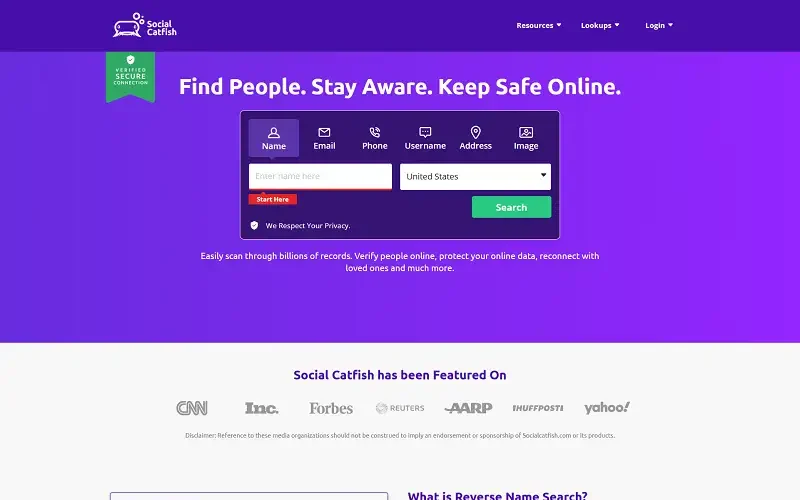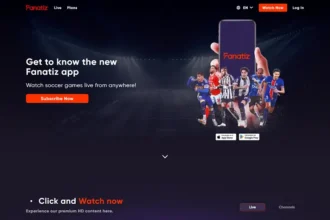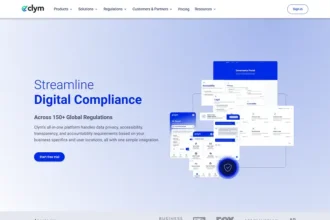In the age of online connections, dating apps, social media, and remote interaction, we all face a hidden risk: meeting someone who isn’t who they claim to be. Whether it’s a romantic interest, a business contact, or a random online friend, the possibility of deception—often called “catfishing”—is real. That’s where Social Catfish comes in: a service designed to help you verify identities, uncover online footprints, and reduce the risk of being duped by fake profiles or scams.
What Is Social Catfish?
Social Catfish is a U.S.-based online investigation service located in Murrieta, California, that specializes in helping individuals verify the authenticity of other people’s identities—particularly in online and dating contexts.
The platform offers tools such as reverse image searches, social media profile lookup, email/phone number searches, and deeper social record checks.
It’s not positioned as a full background check firm for employment/tenant screening, but rather as a tool for everyday, online identity verification.
Key Features of Social Catfish
Here are some of the most useful features the service offers:
- Reverse Image Search – Upload a photo and discover where else it appears online, helping identify if someone is using stolen or fake profile images.
- Name, Email, Phone & Username Lookup – Search using various identifiers to find linked social profiles and public records.
- Social Media Footprint Mapping – See if the person you’re dealing with has consistent presence, or is likely a newly created/fake account.
- Blog & Educational Resources – The company also provides guidance on spotting scams, catfish behavior, and staying safe online.
- Paid Search Services – While some features are free (basic lookups), deeper investigations require payment/subscription.
How Social Catfish Works
Here’s a typical workflow for how someone might use Social Catfish:
- You meet someone online (dating app, social media, business contact) and you’re unsure about their authenticity.
- You gather an identifier (photo, email address, phone number, username).
- On Social Catfish, you use their search tool—upload the photo or enter the identifier.
- The system scans public data sources, social networks, image indexes, and returns a report showing possible matches, history, or lack thereof.
- Based on the result,s you decide if the person seems legitimate (consistent profile, matching photos, verifiable social presence) or suspect (no footprint, only one photo, new account).
- You act accordingly—either proceed with caution or pull back.
The aim is to give you more confidence when dealing with unknown online connections.
Why People Use Social Catfish
Here are some common reasons people turn to Social Catfish:
- To verify someone they met online, particularly before sharing personal details or meeting in person.
- To avoid romance scams and catfishing, which remain common in online dating.
- To protect themselves while engaging in social media, business networking, freelance gigs, or remote relationships.
- To gain a clearer picture of someone’s online presence—for example, if their profile seems fake, or they claim to be someone they are not.
Pros and Cons of Social Catfish
Pros:
- Strong tool for quickly checking photo authenticity and online footprint.
- Helps identify suspicious persons or profiles, giving peace of mind.
- Straightforward interface; even non-technical users can run simple checks.
- Free/basic features available to test before a deeper paid investigation.
- Good reviews around legitimacy and the company’s transparency.
Cons:
- Many features are behind a paywall; free tests may be limited.
- It’s not a substitute for full background checks—some data may be incomplete or missing.
- Results may still be inconclusive if a person has a limited online presence.
Final Thoughts
In a world where online identities are fluid and the risk of deception is high, Social Catfish serves a valuable role—helping you check before you trust. If you’re regularly interacting with new people online, especially in contexts with vulnerability (dating, remote work, freelancing), then a tool like this can offer an extra layer of safety.
That said, it isn’t a perfect panacea. Use it as one part of your online safety strategy—not the entire shield. Combine it with healthy skepticism, verification via conversation/video, and common-sense precautions.
Online identity checking made accessible. That’s Social Catfish.
Secure your online identity now — Get Social Catfish Now











